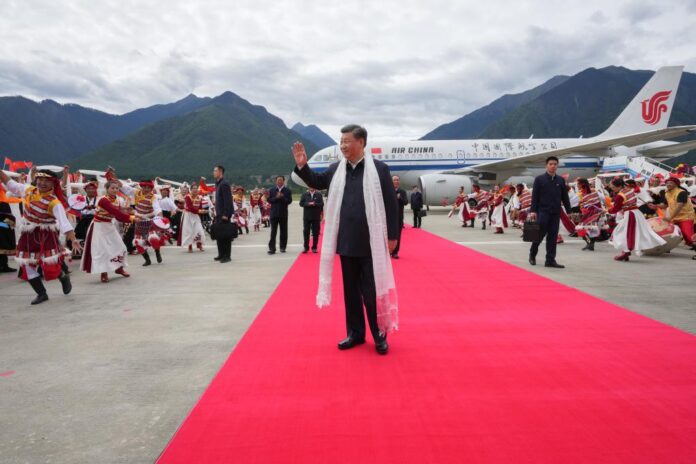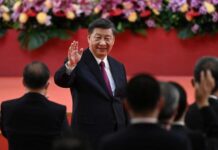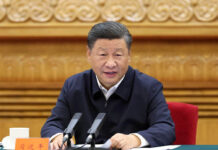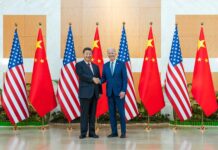(TibetanReview.net, Nov06’21) – In a system where leadership is determined not by democratic contest for popular acceptance among contending candidates but by high-stakes backdoor maneuvers, Chinese President Xi Jinping is set to be confirmed for a third term in office at the upcoming party congress from Nov 8 to 11.
Xi is not only China’s most powerful figure since at least Deng Xiaoping but has also been the most ruthless one in the suppression of human rights in the country in recent decades. His current Sinicization drive is aimed at the assimilation of the country’s ethnic minorities by setting aside their constitutionally guaranteed rights.
With Wang Junzheng, the “butcher of Xinjiang”, being recently appointed its regional party leader and an abashedly China assimilationist Xi Jinping continuing in power in Beijing, the threat to the survival of the cultural identity of Tibet can only get more dire.
The closed door meeting in Beijing of some 400 members of the Communist Party’s all-powerful Central Committee will set the agenda for the 20th party congress next autumn – at which Xi is widely expected to be handed a third term in office, cementing his position as China’s most powerful leader since Mao Zedong, note the AFP Nov 6.
The report cited analysts as saying the resolution for cementing Xi ‘s leadership, only the third of its kind in the party’s history, will help Xi shore up his grip on power by setting in stone his vision for China, ahead of the crucial 2022 party congress.
Although meeting is being held behind closed doors, most of the key decisions are made well in advance, the report noted. As a matter of fact, China’s political meetings are all highly choreographed and open dissent to the official line is extremely rare.
The content of the resolution for cementing Xi’s leadership remains in wraps.
The first such resolution, passed 1945, helped Mao cement his authority over the Communist Party four years before it seized power.
The second, adopted under Deng Xiaoping in 1981, saw the regime adopt economic reforms and recognise the “mistakes” of Mao’s ways.
Harvard University’s Anthony Saich has Said that unlike the above two resolutions, the one on Xi will not mark a break with the past. “Rather, it is intended to show that Xi is the natural inheritor of a process since the founding of the party that qualifies him to lead in the ‘new era’,” the AFP quoted the expert on Chinese politics as saying.
Dissident political scholar Wu Qiang, who lost his job as a lecturer at Tsinghua University in Beijing over his research, has said the resolution’s approval would mean “that Xi Jinping’s authority is uncontested”.






